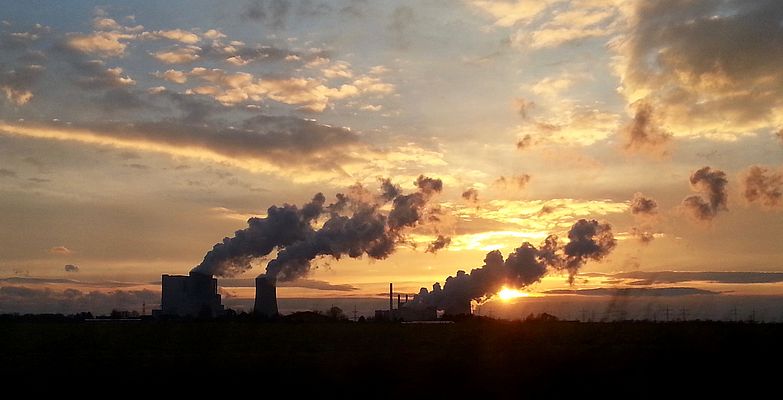Global warming is a fact. There is now no doubt at all that CO2 emissions, caused mainly by fossil-based energy, are the villain. Melting ice from Greenland and the world's polar regions will likely, within 2-3 generations, lead to sea levels rising by 6 meters. Unfortunately, this pace is likely to accelerate, to the extent that both the North and South Poles will melt completely. If the ice on Antarctica melts, sea levels will rise by 60 meters. Even at a 6-meter sea level rise, the consequences are disastrous, enough to make millions of citizens, for example in New York, Tokyo, Shanghai, Singapore and London, homeless.
Low level countries such as Bangladesh, Vietnam and the Netherlands risk being wiped out completely. The accompanying climatic and oceanic changes will make the situation even worse: the Mediterranean and the Middle East could both become uninhabitable, resulting in huge refugee flows and crises. The global food supply is threatened because vegetation simply does not now have enough time to adapt to a new climate.
Globally, nations take action through international climate plans, such as the Kyoto and Paris agreements. And there is certainly agreement that we urgently need to change our energy systems. Yet rising global energy consumption, combined with low energy prices, fosters wastefulness. The real battle between the countries responsible for climate change has not even begun. Understandably, the least developed countries are pointing at their right to prosperity and at the affluent world’s historical responsibility for CO2 emissions. Energy consumption is therefore likely to continue to rise.
The late Professor Hans Rosling's conclusion is that we must develop and provide technologies such as refrigerators, automobiles and washing machines that require a maximum of 10% of today's energy needs, in order to realistically meet environmental objectives. Such restraints may feel a deceptively long way away to us at the moment.
Some enlightenments
How can we explain the discrepancy between the clear risk of the increasing momentum towards a collapse of the climate, and the lack of commitment to activities to solve the problems? There are two important reasons:
1. Psychology: If a threat seems too daunting, then denial of the threat is a built-in reflex, especially if the threat is linked to an addiction. A smoker or alcoholic tends to ignore warnings from doctors, against their better judgment. We depend on energy for comfort, air travel and prosperity. In the same way that a smoker denies the threat of lung cancer because the pleasure of nicotine is so strong, we ignore the fact that rising sea levels are threatening the very existence of mankind. The pleasures that energy gives us in the short term are simply too powerful. The same psychology applies in politics and business: our decisions are usually short-term.
Drastic decisions require broad consensus and often only come about when we have the knife at our throat. It is tempting to take the easy way out and commission yet another investigation of the threats of climate change, deferring the time when the sitting government or board will have to deal with the problem. But there is hope. Most governments are using means of control such as alcohol and tobacco tax with great success to mitigate the effects of dangerous behaviors. We will return to means of control shortly.
2. Understanding: Far too few people remember basic physics that easily shows that energy today is in fact absurdly cheap. 1 kilowatt hour (1 kWh) is the amount of energy required to lift a large car all the way up to the top of the Eiffel Tower! We consumers can purchase this enormous amount of energy for about 0,1 € or 1SEK, either in the form of electricity or as one deciliter of petrol! The alternative to lifting the car with a crane is to ask say 50 Frenchmen to do the job with ropes and muscle power: this would surely cost hundreds if not thousands of euros.
Is there any other product where we get so much value for so little money? (One could argue here that access to cheap energy made it possible to abolish slavery.) Other comparisons: With 1 kWh, one can in half an hour of vacuuming move a few grams of dust from the carpet into the filter bag. The comparison with the car on the Eiffel Tower shows that our vacuum cleaners and other electric gadgets are far from efficient - there is lots of room for improvement for future engineers! As for global conflict management, as Daniel Yergin writes so persuasively in "The Prize”, historically, there are hardly any wars where oil, gas or coal are not there in the background. Unless future solutions are reasonable and fair for all stakeholders, war is inevitable. Much deeper knowledge of politics, history, physics and psychology of energy is required if we want to take the right decisions going forward.
An urgent transition
Is there hope that we can manage the energy transition? Yes, but it is extremely urgent. In fact, there is inspiring progress that showcases human creativity in response to this serious situation. The World Wildlife Fund (WWF) regularly identifies "Climate Solver Technologies". Winners include projects transforming desert into farmland, new ways to save, produce and store energy, to distribute food and goods efficiently, and many more examples. Electric and hybrid cars are reaping success.
Passenger ferry Viking Line has a new ship in operation driven by natural gas or biogas, which only uses 50% of the energy that a similar vessel needed just 10 years ago. China, California and Germany are leaders investing in wind, solar and other renewable energy sources. We can build zero-energy houses, as well as technology to reduce energy consumption dramatically in existing houses.
Sweden is one of the world leaders in clean energy innovation. Companies such Greenely have developed methods to reduce energy consumption with the help of psychology. ABB provides frequency-controlled motors that cut electricity requirements. Uppsala University is a leader in solar cell innovation. And the company I started, Climeon, can produce clean electricity from waste warm water. The world as we know it can build smart grids. We can store energy in all possible forms.
All this is hugely positive and inspiring, but it is not enough to stop climate catastrophe. How, realistically, can we increase the pace? Many nations have opted for a passive, cautious stance - we keep old technologies and sources like nuclear power longer, arguing that these assets have many years of life left to go, and that there are many jobs involved. There is logic in this, and it obviously saves money. The problem is that the money saved is not invested in new technology. A green tax seems very urgent. In summary, we must come to terms with the fact that our planet is seriously threatened.























